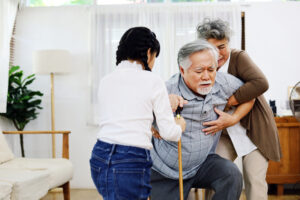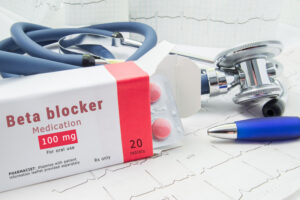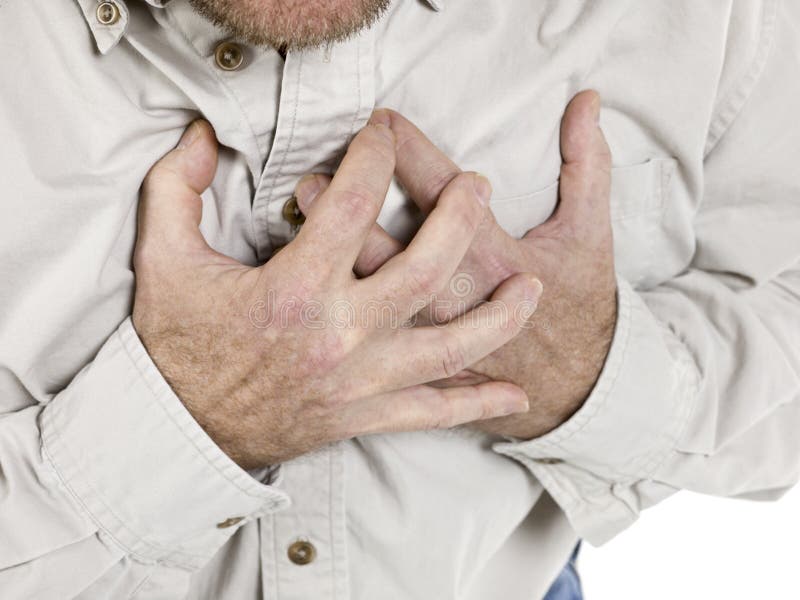Contents
Treat People With Heart Failure Right
A caregiver must look after an elderly with heart failure with great care..A senior citizen suffering from such must make an effort to stay well with the right treatment too. It’s because it’s a health condition that is not only serious but, often gets worse. Some interventions make the symptoms manageable. Thus with the right measures, quality of life becomes achievable.
Even if the heart deteriorates, it doesn’t mean that there’s nothing more to do but to wait for bad news to come. There’s more to life than feeling physical and emotional pains. Besides, there are various means to experience relief and comfort. So it is best to understand the condition and do something about its manifestations.
What Happened To Old People With Heart Failure?
Many things could have caused congestive heart failure to surface. This problem could develop from either or a combination of these:
- Poor lifestyle choices that resulted in cardiac problems
- Unmanaged diseases added workload to the heart
- Autoimmune disorders
- The use of vices and recreational drugs
- Prolonged use of specific medications
- Congenital heart problems
There is no undoing the past of an elderly with heart failure. But measures to manage his or her situation are available. Caregivers and old people only need to focus on what they can control. It would be productive to find out the right palliative care measures to address the issue right.
Be Familiar With The Types and Stages Of Congestive Heart Failure In Elderly Folks
Knowing the different kinds and stages of congestive heart failure is essential. Before taking action on any symptom, do this first. It’s so you would apply appropriate intervention only and avoid making matters worse.
A Brief Explanation Of The Issue
The right side of the heart gets blood with low oxygen from the veins, oxygenates it, and pumps it to the lungs. The left side receives oxygenated blood from the lungs and sends it to the arteries plus the rest of the body. Heart failure happens because there are problems with the atrium, ventricles, and workload.

Heart Failure Types
- Left-sided heart failure. This is the most common kind and happens when the left ventricle doesn’t work as well as it should. Blood doesn’t get pumped out of the heart and backs up the lungs. Thus congestion and symptoms associated with it occur.
- Right-sided heart failure. This is often a result of left-sided heart failure. The blood pools in the lungs and causes counterflow with the right ventricle. It then becomes stressful for it to pump blood out.
- Diastolic heart failure. It’s an issue with the diastole or when the heart relaxes to get blood. Often, this is a result of left ventricular hypertrophy stiffness. One of what may cause it is chronic hypertension. With this, the left ventricle doesn’t relax well and gets filled right. So blood doesn’t get sent enough throughout the system.
- Systolic heart failure. This is an asystole problem or an issue when the heart squeezes to pump blood out. The common causes of this are heart weakness and enlargement. With a reduced ejection fraction, not enough blood leaves the heart.
Stages of Heart Failure In Elderly People
The American Heart Association discussed the different stages of heart failure. The phases are to organize the signs of heart failure in the elderly or people in general. Likewise, they are to show if someone is at risk or has the condition already. That is while describing the signs and symptoms plus therapy goals per stage.
Stage A
Seniors who belong here are only at risk of having heart failure. These are folks who don’t have heart structure issues or any symptoms of the disease. Yet they have conditions that make them susceptible to experiencing it.
Examples of individuals who are at risk:
- Diabetic or have metabolic syndrome
- Hypertensive
- Obese
- Have fat build-up in their arteries
- People who take harmful drugs for the heart
Stage B
Old people who are a part of this stage have structural heart issues. Yet they show no definite signs and symptoms of the condition.
They are often geriatric patients who:
- Had a heart attack
- Underwent heart surgery to fix left ventricle for hypertrophy or low ejection fraction
- Has asymptomatic valve disease
Stage C
Folks in this phase already have congestive heart failure. They have problems with the structure of their heart. They also display the signs and symptoms that prove the presence of the disease.
What’s sure about them is that they:
- Have structural heart disease
- Experience shortness of breath, tiredness, and poor endurance
Stage D
Serious cases belong in this stage. These are folks with unmanageable symptoms and signs of heart failure in the elderly. This phase is where elderly folks only have palliative care as their option.
- They are those who experience symptoms at rest and cannot leave a hospital due to intense care needs. Doctors only allow them to go if special care is available after discharge.
How Are These Diagnosed and Treated?
Doctors request tests before diagnosing an old man or woman to have the disease. An elderly with heart failure get a routine examination too. This is to make sure of everything and make interventions count.

Cardiac Tests To Identify And Support People With Heart Failure
- Physical Exam. This often involves a systematic ocular inspection, auscultation, and palpation. It’s to check for signs of heart failure. Examples are irregular heart rhythm, severe edema, and distended veins.
- Electrocardiogram and echocardiogram. The former reads the electrical impulses to determine the rhythm of the heart. A high resting heart rate may show the condition. The latter is for visualizing the structure and also functioning of the organ. It may detect structural abnormalities and show issues with the systole and diastole. Doctors need this to see how the heart is doing on the inside.
- Coronary angiogram. This is what doctors order to see how the different vessels are doing. They may show blockages and even help remove them. Thus they are useful for detecting and also dealing with any problem with congestion.
- Stress test. If appropriate, this test can help tell an old person’s endurance and even heart status. Those undergoing the test are on a treadmill and asked to walk and even run. That is while having electrodes and a blood pressure cuff attached. They feed data to an EKG machine to show a person’s breathing and heart functioning.
- Holter Monitor. Physicians ask geriatric patients to put on this device. It can help capture irregularities or abnormalities. That is while wearers go about their daily activities.
Interventions An Elderly With Heart failure
As there are stages in congestive heart failure, so are there measures to deal with them. The interventions are to address the stages or signs of heart failure in the elderly. More often than not, doctors are the ones who recommend them. They are as follows:
- Stage A is often treated with lifestyle modification and the use of specific drugs. For instance, there is advice to reduce if not avoid smoking and drinking. Physicians also recommend medicine to manage vascular and metabolic diseases.
- For stages B and C, drugs to relax the veins and lower blood pressure are important. But, in Stage C, diuretics and devices such as defibrillators may be appropriate. Also, exercise reduction, dieting, resting more, and drinking less could help too.
- Extraordinary measures in Stage D are most common. A heart transplant and lifelong drugs to keep the heart pumping may be necessary. Mechanical support and the use of pilot drugs and therapies are also options.
Provide Physical and Emotional Support For An Elderly With Heart Failure
Caregivers need to consider these when taking care of an elderly with heart failure. After all, the heart is one of the most important organs of the human body. Since people with heart failure can feel helpless and depressed at any time, it would be best to hear them out. Also, when they need aid in doing things, try to assist them.
Ways To Help The Elderly With Congestive Heart Failure
- Some seniors appreciate being a part of a support group. If an old person asks to join one, allow for it to happen. In such fellowships, people often share their experiences and experience stress relief.
- Knowing the limitations and potentials of elders is important. Help only when there is a need for it and give old people the chance to keep being independent somehow.
- Promote elderly activity but teach about self-evaluation. That is to say, encourage being active to avoid depression and maintain confidence. Yet inform seniors that they need to take care of themselves too.
- Provide the means to make help available. For the elderly, provide a caregiver if you can’t supply the aid needed. Getting an old person to put on an emergency response pendant can help too.

In Conclusion
When an elderly with heart failure comes, treat the person right. He or she likely needs special care, regardless of the heart failure stage. After all, it is a condition that has no cure and becomes worse after some time.
Instead of focusing on how and why it happened to old people, concentrate on providing relief. Individuals who have it are suffering enough from the disease. They need proper intervention for palliative care.
Read More







